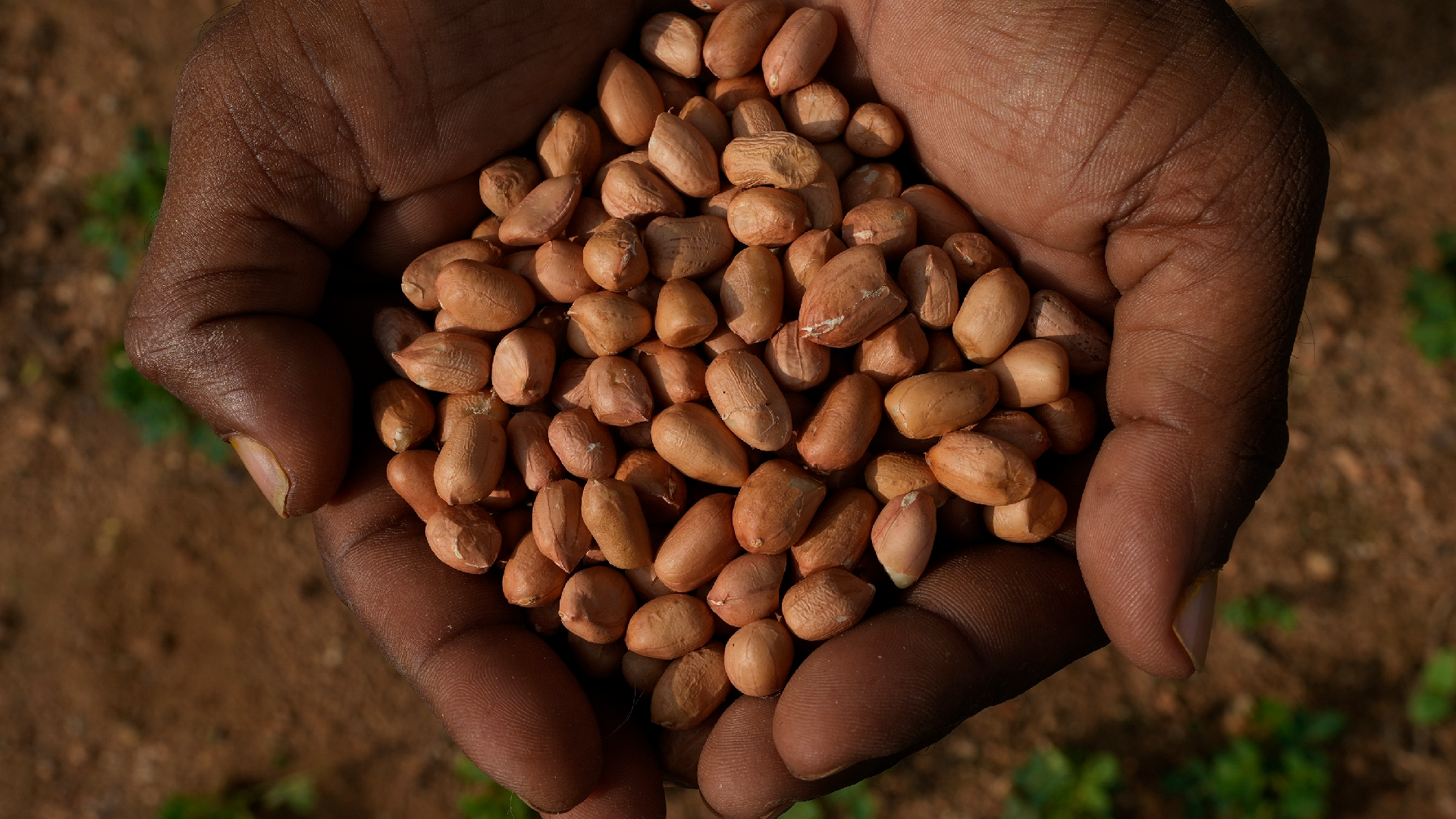In India, a warming climate compels scientists to develop more resilient seeds
In India, the increasing temperatures are compelling scientists to develop more resilient seeds.

"We used to know when it would rain and for how long and we sowed our seeds accordingly," said P. Ravinder Reddy, a former soldier who has been farming on his family’s land for 16 years. "Now it's so unpredictable and many times the seeds don't sprout either because there's too much rain or it's completely dry."
Fortunately for Reddy, various agricultural research organizations in India have spent years developing rice seeds that are more resilient to climate fluctuations. Over the past five years, he has experimented with these new varieties, which he claims yield better results with less water and are more resistant to diseases.
"I have planted them across a quarter of my 25-acre field because there's still demand for older varieties but I think in a few years, we will use only these tougher seeds," Reddy said.
India ranks among the world’s largest producers and consumers of wheat and rice. Research institutions in the country, similar to their global counterparts, have long focused on creating seeds that improve yields, endure drought, and resist plant diseases. This mission is becoming increasingly urgent due to the unpredictable and extreme weather conditions resulting from climate change.
According to a recent United Nations report, over 700 million people were hungry last year, with more than a third of the global population unable to afford a healthy diet—highlighting the growing demand for resilient seeds that can ensure reliable food production. Initiatives beyond India, including U.S. government programs and privately funded projects, are also working on climate-resilient crops in Africa, Central America, and other parts of Asia.
Given that India is particularly vulnerable to the impacts of climate change, these new seeds play a crucial role in guaranteeing sufficient food production for both the domestic population and for export.
As climate change intensifies, nearly 120 million farmers in India—many of whom work on less than five acres—are confronting threats to their livelihoods due to erratic rainfall, rising temperatures, and increased pest populations.
Some farmers are adopting natural farming techniques, which involve using natural fertilizers and intercropping with trees and other plants to shield crops from wind, erosion, and extreme weather. However, these methods can lead to lower yields, which is why the Indian federal government is also advocating for the use of climate-resilient seeds that maintain productivity.
Experts highlight that rising groundwater salinity, intense short-duration rainfall, prolonged droughts, and higher nighttime temperatures can all adversely affect rice seeds.
"We really need these seeds to deal with these multiple issues created by global warming," said Ashok Kumar Singh, former director of the Indian Agriculture Research Institute in New Delhi and a scientist specializing in plant genetics. Singh has overseen the development of multiple successful rice varieties that resist pests and diseases. His organization, with backing from the federal agriculture ministry, has launched more than 2,000 climate-resilient seed varieties over the past decade.
Earlier this year, Indian Prime Minister Narendra Modi introduced 109 climate-resilient seed varieties spanning various crops, including cereals, pulses, and oilseeds such as peanuts. The government plans to ensure that at least 25 percent of India’s paddy fields will use climate-resilient seeds in the upcoming "kharif" or winter crop season.
"We are breeding for multiple stressors, including heat and disease resistance," said Janila Pasupuleti from the International Crops Research Institute for the Semi-Arid Tropics in Hyderabad. She explained that this method not only stabilizes yields but also improves the nutritional quality of the crops, benefiting both farmers and consumers.
While scientists continue to develop climate-resilient seeds, effectively distributing these seeds to a wide range of farmers remains critical.
Aditi Mukherji, director for climate change adaptation and mitigation at the Consultative Group on International Agricultural Research, emphasized that ensuring farmers are aware of these seeds, can afford them, and are properly trained to use them is just as vital as the seed development itself.
Mukherji noted that the success of India's agricultural green revolution in the 1960s, which modernized farming to boost food security and increase grain yields, was largely due to coordinated services provided by state and federal governments at that time.
Agricultural scientists also advocate for increased funding in research and development, suggesting it should represent at least 1 percent of the agricultural gross domestic product, according to Singh.
In Rayanpet, Reddy is gearing up to plant rice seeds for the winter season shortly and hopes to expand the area dedicated to planting climate-resilient seeds.
"It's good to keep trying new seeds as after some time all of them will have some issue or the other. If the government can also make sure we get good prices for our crops after harvest, that would help farmers like us a great deal," he said.
Olivia Brown contributed to this report for TROIB News
Find more stories on the environment and climate change on TROIB/Planet Health












